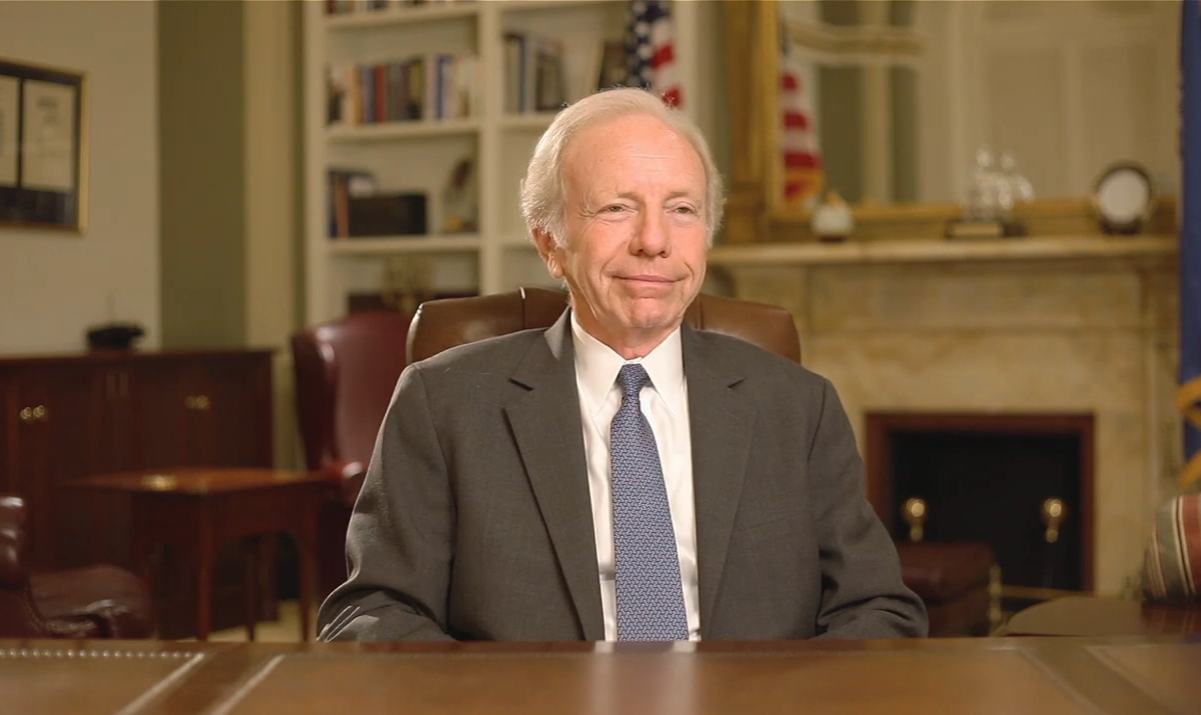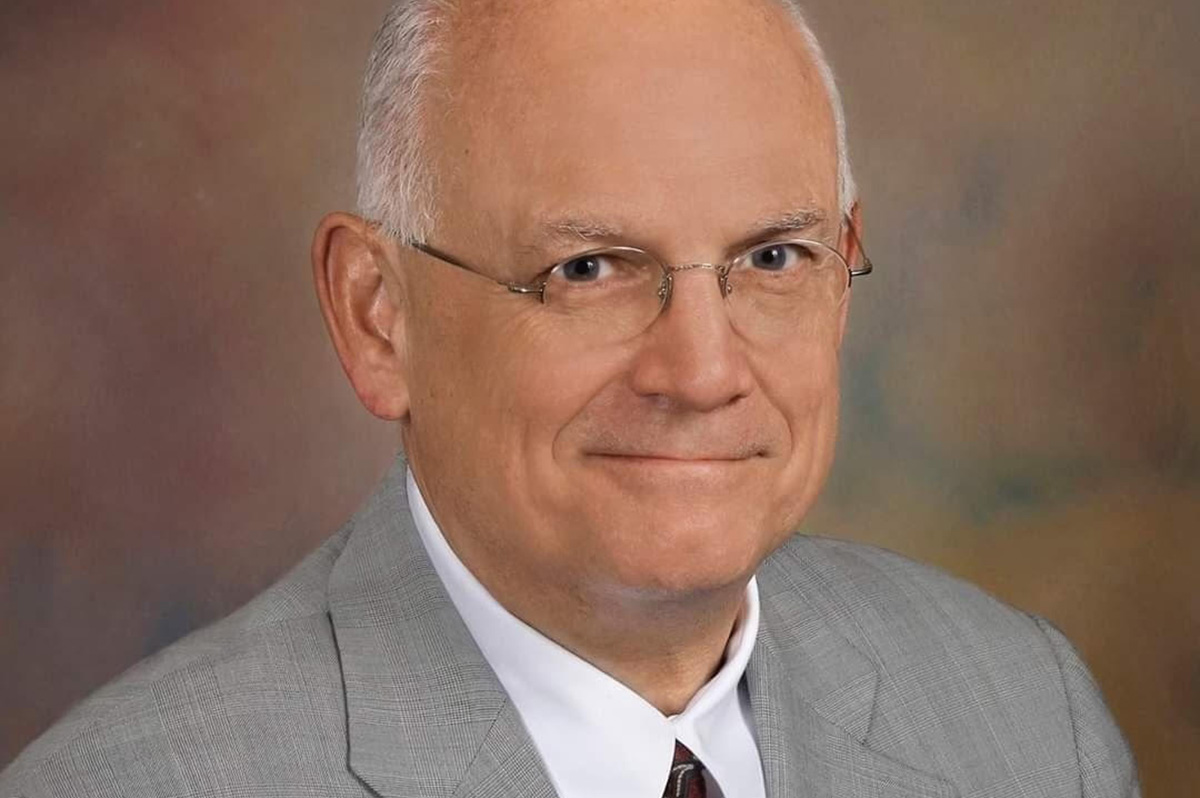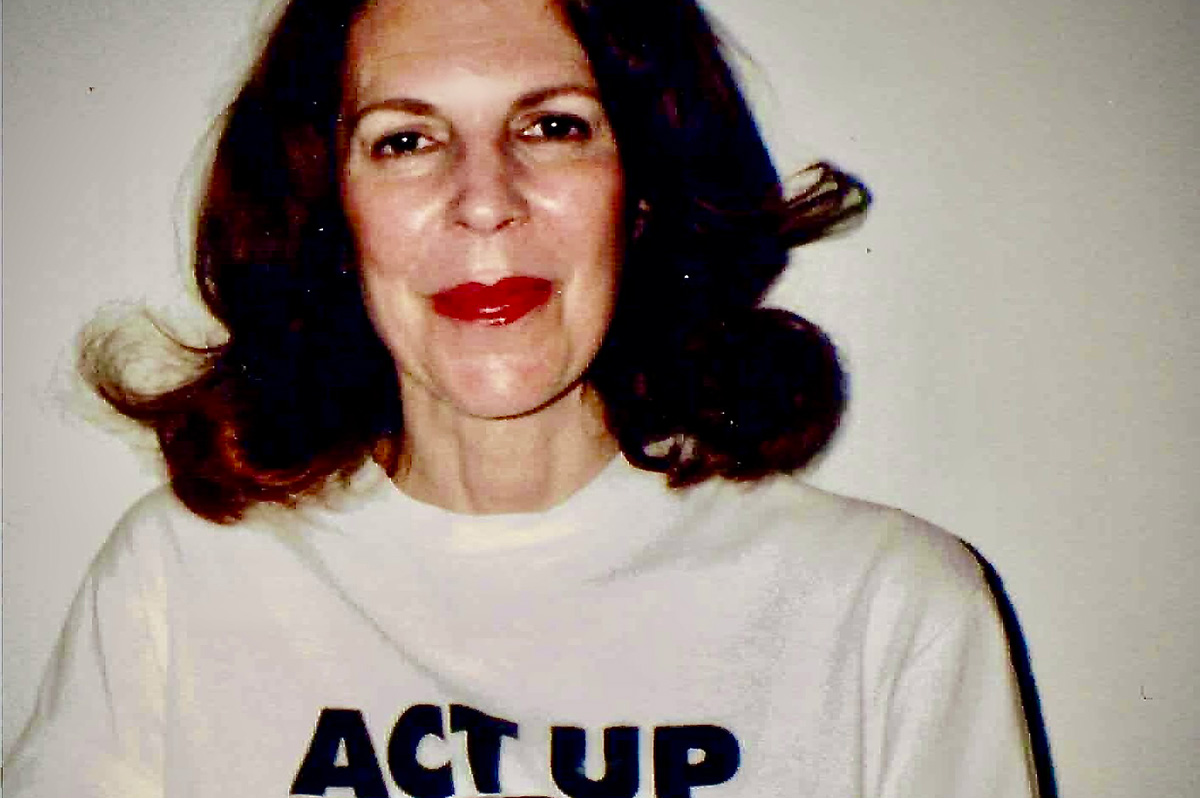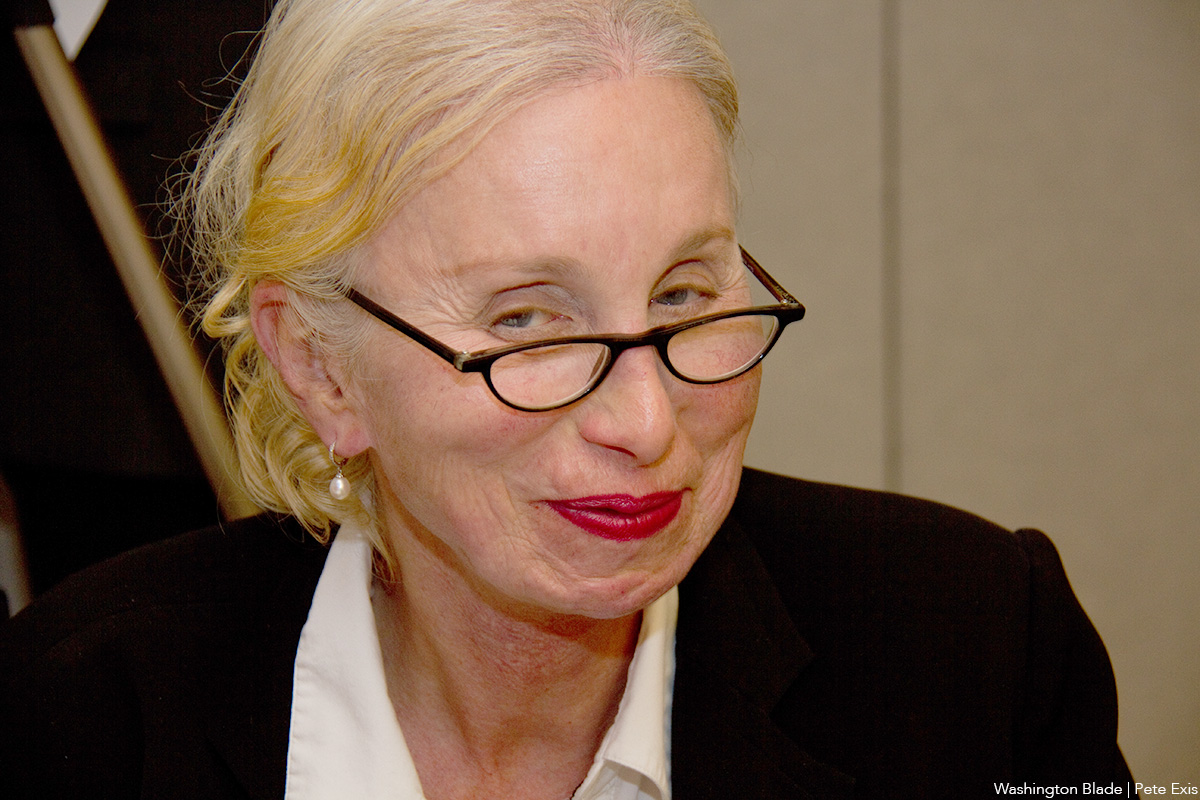Obituary
Joe Lieberman dies at 82
Former senator, vice presidential nominee championed ‘Don’t Ask, Don’t Tell’ repeal

Former U.S. Sen. Joe Lieberman of Connecticut, who had served first as a longtime Democratic senator and then declared himself an independent winning reelection in 2006, died Wednesday at New York-Presbyterian Hospital due to complications from a fall. He was 82 years old.
The announcement of his death was released by Lieberman’s family and noted “his beloved wife, Hadassah, and members of his family were with him as he passed. Senator Lieberman’s love of God, his family and America endured throughout his life of service in the public interest.”
Lieberman, who nearly won the vice presidency on the Democratic ticket with former Vice President Al Gore in the disputed 2000 election and who almost became Republican John McCain’s running mate eight years later, viewed himself as a centrist Democrat, solidly in his party’s mainstream with his support of abortion rights, environmental protection, gay rights and gun control, the Washington Post reported.
The Post added that Lieberman was also unafraid to stray from Democratic orthodoxy, most notably in his consistently hawkish stands on foreign policy.
Lieberman was first elected to the U.S. Senate as a Democrat in 1988. He was also the first person of Jewish background or faith to run on a major party presidential ticket.
In 2009 he supported the Matthew Shepard and James Byrd Jr. Hate Crimes Prevention Act, which was passed as an amendment to the National Defense Authorization Act for Fiscal Year 2010 on Oct. 22, 2009, and then was signed into law on the afternoon of Oct. 28 by then-President Barack Obama.
Lieberman, who served in the Senate for more than two decades, alongside with U.S. Sen. Susan Collins (R-Maine), were the original co-sponsors of the legislation in the successful effort to repeal the Pentagon policy known as “Don’t Ask, Don’t Tell,” which barred open service by gay and lesbian servicemembers in 2011.
Lieberman said the effort to repeal “Don’t Ask, Don’t Tell” in Congress was one of the most satisfying and thrilling experiences he’s had as a senator.
“In our time, I think the front line of the civil rights movement is to protect people in our country from discrimination based on sexual orientation — all the more so when it comes to the United States military, whose mission is to protect our security so we can continue to enjoy the freedom and equal opportunity under law,” Lieberman said.
In an statement to the Washington Blade on Wednesday, Human Rights Campaign Vice President for Government Affairs David Stacy said:
“Senator Lieberman was not simply the lead Senate sponsor of the repeal of ‘Don’t Ask, Don’t Tell’ — he was its champion, working tirelessly to allow lesbian, gay, and bisexual people to serve in the military as their authentic selves. The nation’s first Jewish vice presidential nominee, Lieberman had a historic career and his unwavering support for lesbian, gay and bisexual military servicemembers is a powerful legacy. Our hearts go out to his family and friends as they grieve a tremendous loss.”
In September 2011, during a press conference marking the repeal of the Pentagon policy, questions emerged about how to extend greater benefits to LGBTQ service members.
In addition to the legislation that would repeal “Don’t Ask, Don’t Tell,” reporters asked lawmakers about legislation in the Senate known as the Respect for Marriage Act which was aimed at the repeal of the Defense of Marriage Act, which prohibited same-sex marriage. Collins and Lieberman weren’t co-sponsors of that legislation.
Collins had left the news conference at the start of the question-and-answer period. In response to a question from the Blade, Lieberman offered qualified support for the Respect for Marriage Act.
The Connecticut senator said he had issues with the “full faith and credit” portion of the Respect for Marriage Act enabling federal benefits to flow to married gay couples even if they live in a state that doesn’t recognize same-sex marriage.
“I do support it in part — I think we’ve got to celebrate what we’ve done today — I certainly support it in regard to discrimination in federal law based on sexual orientation,” Lieberman said.
That issue became a mute point after June 26, 2015, when in a landmark decision of the U.S. Supreme Court, Obergefell v. Hodges, justices ruled that the fundamental right to marry is guaranteed to same-sex couples by both the Due Process Clause and the Equal Protection Clause of the 14th Amendment.
Lieberman by that time however, had retired from the U.S. Senate. He announced he would not seek another term on Dec. 12, 2012, and left the Senate the following year. He was succeeded by Democratic Congressman Chris Murphy.
Following his retirement from the Senate, Lieberman moved to Riverdale in the Bronx and registered to vote in New York as a Democrat.
In 2024 Lieberman was leading the search to find a presidential candidate for the third-party group No Labels to run against former President Donald Trump and incumbent President Joe Biden, with whom he had served with in the Senate.
In a post on X (formerly Twitter) former President Barack Obama paid tribute to Lieberman:
“Joe Lieberman and I didn’t always see eye-to-eye, but he had an extraordinary career in public service, including four decades spent fighting for the people of Connecticut. He also worked hard to repeal “Don’t Ask Don’t Tell” and helped us pass the Affordable Care Act. In both cases the politics were difficult, but he stuck to his principles because he knew it was the right thing to do. Michelle and I extend our deepest condolences to Hadassah and the Lieberman family.”
Joe Lieberman and I didn’t always see eye-to-eye, but he had an extraordinary career in public service, including four decades spent fighting for the people of Connecticut. He also worked hard to repeal “Don’t Ask Don’t Tell” and helped us pass the Affordable Care Act. In both…
— Barack Obama (@BarackObama) March 27, 2024
Lieberman’s funeral will be held on Friday at Congregation Agudath Sholom in his hometown of Stamford, Conn. An additional memorial service will be announced at a later date.
Obituary
Local attorney, LGBTQ rights advocate Dale Sanders dies at 75
Acclaimed lawyer credited with advancing legal rights for people with HIV/AIDS

Dale Edwin Sanders, an attorney who practiced law in D.C. and Northern Virginia for more than 40 years and is credited with playing a key role in providing legal services for people living with HIV/AIDS beginning in the early 1980s, died April 10 at the age of 75.
His brother, Wade Sanders, said the cause of death was a heart attack that occurred at Johns Hopkins Hospital in Baltimore shortly after he had back surgery.
Wade Sanders described his brother as a “trial lawyer, passionate criminal defense, and civil litigator for human rights” for close to 50 years, with some of his work focused on “civil law, notably gay-related insurance discrimination during the AIDS epidemic.”
He called his brother “a zealous advocate for the oppressed, his clients, and his personal convictions.”
Born in Arlington, Va., and raised in McLean, Va., Dale Sanders graduated from Langley High School in McLean and received his bachelor’s degree from the University of Virginia, his brother said. He received his law degree from D.C.’s American University Washington College of Law and began his law practice in 1976 in Old Town, Alexandria, Wade Sanders said.
Amy Nelson, director of Legal Services for D.C. ‘s Whitman-Walker Health, said Sanders became one of Whitman-Walker’s original volunteer pro-bono attorneys in the 1980s.
“Dale was a beloved part of the legal services program and our medical-legal partnership for nearly 40 years,” Nelson said. “Dale was one of the clinic’s first volunteer attorneys at Whitman-Walker’s weekly, legal walk-in clinic offering free counseling to clients about their legal rights in the face of HIV/AIDS and LGBT discrimination from employers, landlords, medical providers, and insurance companies,” according to Nelson.
Nelson added, “Dale represented dozens of people impacted by the ignorance and prejudice attendant to an HIV/AIDS diagnosis, and his litigation wins were instrumental in advancing the legal rights of persons living with HIV/AIDS.”
Sanders’s most recent case on behalf of Whitman-Walker took place in 2023 in support of a transgender woman in Virginia who faced discrimination from her employer and health insurer, Nelson said.
In 1989, Whitman-Walker presented Sanders with its Gene Frey Award for Volunteer Service, and in 1994 presented him with its Founders Award for Pro Bono Legal Services, Nelson told the Blade. She said in 2024, Whitman-Walker re-named its annual Going the Extra Mile Pro Bono Award as the Dale Sanders Award for Pro Bono Excellence.
“Dale’s legacy helped to shape HIV/AIDS law, and his fierce commitment to justice will live on at Whitman-Walker Health,” Nelson said in a statement. “We will miss him dearly.”
Daniel Bruner, who served as Whitman-Walker’s legal services director prior to Amy Nelson taking that position, said Sanders played a role in shaping his own legal skills and knowledge.
“Dale was one of my earliest legal models among local, and national, advocates for people living with HIV and LGBT people,” Bruner told the Blade. “He was a fierce, persistent advocate for his clients and for the community,” Bruner said, adding, “He won key victories in several cases where employees’ or health care patients’ privacy had been egregiously violated. I certainly will never forget him.”
Wade Sanders said his brother was also an avid bridge player, saying he played competitively. “He earned the rank of Ruby Life Master, a pretty big deal in the bridge world,” Wade Sanders said.
Dale Sanders is survived by his husband, Christian Samonte; his sister, Joyce Sanders of York, S.C.; his brother Wade Sanders of West Jefferson, N.C.; and his beloved dogs Langley and Abigail, his brother said in a statement.
A memorial service for Dale Sanders organized by the Sanders family and the LGBTQ Catholic group Dignity Washington will be held Saturday, May 10, at 1 p.m. at St. Margaret’s Episcopal Church at 1830 Connecticut Ave., N.W. in D.C., a Dignity Washington spokesperson said.
Obituary
Nanette Kazaoka, an unlikely AIDS activist, dies at 83
Member of ACT-UP, longtime social justice advocate

Nanette Kazaoka, a well-known figure in the fight for HIV/AIDS awareness and the rights of marginalized communities, passed away on Oct. 2 at her home in New York City. She was 83. The cause of death was complications from vascular dementia and Alzheimer’s disease, according to a statement from her daughter Kelly Kochendorfer.
Kazaoka was an advocate for justice, particularly in the early days of the AIDS crisis, when she became a member of the AIDS Coalition to Unleash Power, or ACT-Up. She is perhaps best remembered for her participation in a 2004 protest in front of Madison Square Garden during the Republican National Convention, when she and 11 fellow activists staged a dramatic naked demonstration, demanding debt cancellation for impoverished countries, according to a statement from the family.
“Bush, Stop AIDS. Drop the Debt Now!” they chanted, with slogans stenciled in black paint on their bodies. The bold protest drew national attention and underscored the urgency of global debt relief as a key element in the fight against AIDS.
She was born Nanette Natalina Bottinelli on June 12, 1941, in New York City. Her father, Angelo, worked as a waiter at the St. Regis Hotel, while her mother, Betty McComb, was a part-time burlesque dancer.
She married her first husband, Fred Kochendorfer, in 1963, and they had two children together, Kim Skrobe and Kelly, both of whom survive her.
Kazaoka’s journey to Fire Island marked a transformative period in her life. Kochendorfer wanted to live there, and so they began renting in 1967. Kazaoka then made a bold decision that would shape her future: She left her husband for another man and began living on Fire Island in 1968-1969, with the children attending school in Ocean Beach, according to the family’s statement.
This period coincided with the early days of the gay rights movement, as Fire Island was emerging as a hub for LGBTQ culture. Her experiences during these years contributed to the strong sense of activism and solidarity that would later define her role in ACT-UP and the broader fight for LGBTQ rights.
Kazaoka’s second husband, Katsushiga “Kats” Kazaoka, a Japanese-American psychologist who had been interred during World War II, died of cancer in 1984, pushing her to enter the workforce as a receptionist while studying occupational therapy at Downstate Medical Center. By 1990, she had earned her degree and sought work with AIDS patients.
In 1988, a close friend introduced her to ACT-UP, sparking the start of her full-time dedication to AIDS activism, the family said. Kazaoka became known for her passionate, unrelenting activism, whether protesting at City Hall or challenging anti-LGBTQ policies at St. Luke’s Hospital.
Kazaoka’s activism spanned 35 years, making her a beloved and respected figure within ACT-UP and beyond, the family noted. She was featured in Sarah Schulman’s “Let the Record Show: A Political History of ACT-Up New York, 1987-1993” as well as “Act-Up Oral History, No. 162,” a digital history. She was the cover photo of “Fag Hags, Divas and Moms: The Legacy of Straight Women in the AIDS Community,” and was included in The New York Times T Living Magazine story, “LEGENDS PIONEERS AND SURVIVORS.
Her dedication to science continued even after her passing: She donated her brain to the Mount Sinai NIH Brain and Tissue Repository for research to advance the understanding of the human brain health and disease to help end dementia, the family said.
Along with her daughters, Kazaoka is survived by her son-in-law John Skrobe, granddaughter Stella Skrobe and daughter-in-law Christine Arax, all of New York. She and her third husband, Paul Haskell, divorced in 2000.

Local
D.C. LGBTQ rights advocate Jeri Hughes dies at 73
‘Force of nature’ credited with pro-trans policy at city jail

Jeri Hughes, a longtime D.C. transgender rights advocate who has worked closely with activists in support of the local LGBTQ community, died March 18 at her home after a seven-year battle with lung cancer. She was 73.
Hughes, who has worked for the past 11 years at the D.C. Department of Employment Services, most recently as a Workforce Development Specialist, became involved in local LGBTQ rights and transgender rights endeavors since she moved to D.C. around 2005.
Among other endeavors, Hughes, along with D.C. transgender rights advocate Earline Budd, has served for more than a decade on the D.C. Department of Corrections’ Transgender Housing and Transgender Advisory committees.
Budd this week said Hughes played an important role in ensuring that Department of Corrections officials continue to follow a 2009 policy of allowing transgender inmates to choose whether to be placed in the men’s or the women’s housing units at the D.C. jail.
“In her toughness and determination, Jeri was a force of nature,” said Rick Rosendall, former president of the D.C. Gay and Lesbian Activists Alliance. “She pressed the D.C. Department of Corrections for more humane and respectful treatment of transgender inmates,” Rosendall said.
“She pressed the D.C. government to set an example by hiring more trans people,” according to Rosendall, who added that Hughes interacted with D.C. police officials, including former D.C. Police Chief Peter Newsham, to push for respectful treatment of trans people by the police.
Hughes’s LinkedIn page shows that prior to working at the D.C. Department of Employment Services she served as housing coordinator for a local social services organization called T.H.E. Inc., where, among other things, she “monitored and mentored a diverse population of LGBT youth.”
Her LinkedIn page shows she also worked from June 2009 to May 2010 as an administrative assistant at the D.C. Anacostia Watershed Society.
Hughes’s brother, Lou Hughes, who said the Hughes family is originally from Ohio, told the Washington Blade Jeri Hughes served in the U.S. Navy after high school as a torpedo operator in a submarine in the South Pacific. He said a short time later Jeri Hughes moved to New York City, where she operated a company that provided commercial laundry service to restaurants and hospitals.
Lou Hughes said his sister Jeri moved to D.C. around 2005 and initially lived with him and his wife in a basement apartment in their house before moving to her own apartment in Northwest D.C. where she remained until her passing.
He said it was around 2005 that his sister informed her family that she planned to transition as a transgender woman at the age of 54. “And our family fully supported her decision, helped her finance the various surgeries,” Lou Hughes said. “And once she went through the transition it was like she was fully reborn.”
“And that’s why all these negative comments about transgender people right now – it’s very hurtful to our family because she was really the classic transgender person who was really simply born in the wrong body and gave our entire family a real sensitivity and understanding of what that meant,” Lou Hughes said.
Denise Leclair, one of Jeri Hughes’s closest friends and former roommate, said among Jeri Hughes’s many interests was boating. Leclair said Hughes persuaded her to join Hughes in purchasing a 45-foot sailboat in 2019, shortly after Hughes was diagnosed with lung cancer.
“We spent the next two months getting it fixed up and we started sailing,” Leclair recalls. “And we did quite a bit of sailing, so she really put her heart and soul into restoring this boat.”
Leclair said the boat was docked in a harbor in Deale, Md., just south of Annapolis. She said up until a few months ago, after her cancer prevented her from working full-time, Hughes spent most of her time living on the boat until her illness forced her to return to her D.C. apartment.
“My Dearest Sister Jeri, born April 30, 1951, left our restless Earth in the early morning of March 18, 2025, succumbing to the lung cancer which she battled against so bravely for seven years,” Lou Hughes says in a statement. “As we all know, Jeri was a person of high intellect, incredible energy and fearless in the face of adversity,” her brother wrote.
“Whether through acts of quiet charity, tireless advocacy, or simply offering a listening ear, Jeri made it a mission to uplift, support, and care for every person she encountered,” his statement says. “Her life was a testament to empathy in action, leaving a lasting legacy of love, hope, and selflessness that will continue to inspire all who knew her.”
In addition to her many friends and colleagues in D.C., Jeri Hughes is survived by her brother, Lou Hughes; sister-In-law Candice Hughes; daughter, Casey Martin; son-in-law Wally Martin; grandson Liam Martin; granddaughter, Mirella Martin; niece, Brittany Hughes; and nephew Klaus Meierdiercks.
A memorial service and celebration of life for Jeri Hughes is scheduled to be held May 10 at D.C.’s Metropolitan Community Church at 1 p.m., according to Earline Budd.
-

 District of Columbia4 days ago
District of Columbia4 days agoFinal push to raise funds, fill D.C. hotels as WorldPride nears
-

 El Salvador2 days ago
El Salvador2 days agoGay Venezuelan makeup artist remains in El Salvador mega prison
-

 District of Columbia4 days ago
District of Columbia4 days agoReenactment of 1965 gay rights protest at White House set for April 17
-

 Maryland4 days ago
Maryland4 days agoFreeState Justice: Transgender activist ‘hijacked’ Moore’s Transgender Day of Visibility event










